Initially, it’s harder for a person addicted to prescription painkillers to admit their need for help. That’s because the people involved oftentimes don’t fit the stereotype of an addict.
For example, a professional woman has a back surgery, and justifiably uses pain medications. But over time, she develops a full-blown addiction. She has not had prior drug use, yet finds herself entrenched and entangled in a lifestyle that controls her every thought and action. Too embarrassed or ashamed to admit her problem, she doesn’t know how to access or seek help because she (or her family) refuses to see her problem is addiction and she need professional help. This can devastate a person’s life in all aspects.
Family members can have a difficult time accepting that addiction is present, and often ignore the signs. This can strain all forms of healthy connection and communication in the family system, and can even aid in the addict’s lifestyle. That’s why it is vital for family members (or the addict) to understand the factors involved, and to know drug addiction goes beyond a moral choice. While it starts as chemical/bodily problems, it will ultimately require a spiritual solution.
Detoxification from Opioid Pain Medication
Anyone who faces addiction or dependence will need to undergo detoxification and will face the painful process of withdrawal. Physical symptoms of opiate based pain medication will be realized in 4 to 6 hours after usage. Not only will the absence of these stop foregoing the pain that was there to begin with, but the body will be in an added state of craving and extreme physical illness. This can include, but it not limited to, nausea, body aches, depression, extreme agitation, headache, sweats, runny nose, vomiting, diarrhea, sleeplessness and other symptoms that have a toxic flu-like feel.
Because these symptoms are so severe, it is strongly recommended a person safely detoxes in a licensed detoxification center where temporary drugs such as suboxone can be used to aid in the transition of the body off the drugs.
People that detox at home are far more likely to relapse and far less likely to get the additional treatment needed to aid in long-term sobriety.
A structured detox facility can also encourage healthy eating and give hope to the person that struggling.
Opioid Pain Medication Addiction and Treatment
Addiction goes beyond physical dependency. To overcome addiction, a person needs to be treated – body, soul and spirit. Anyone who experience addiction will need to understand that eliminating the drug isn’t enough. There are driving rooted issues of addiction that are typically emotional and spiritual nature. Finding these roots is vital to long-term success.
At New Life Spirit Recovery, we believe the greatest gift of recovery comes through grace and forgiveness. Shame, guilt and bitterness are usually the driving forces behind the addictive mentalities. Thus, the process of healing involves a deep and detailed look at all areas of a person’s life where forgiveness, redemption and renewal can be applied.
In 12 step programs, if properly understood, addicts learn simple, easy ways to apply God’s truth into their circumstance. Intensive counseling, group classes and education all help aid in developing a pathway toward health restoration.
Mostly, a person that has suffered addiction can lose dignity and confidence, and needs to encounter the radical realization of God’s love and grace. They need to have their authentic identity rescued as the old mentalities of addiction and all the negative behavior attached to it are removed. There is usually profound wreckage left behind, so in receiving the magnitude of God’s resources, there is a need to take responsibility and humbly acknowledge the nature of wrongdoing and shortcomings. This happens best with the support of others who have already found freedom.
Families are strongly encouraged to participate in a family recovery process, as each family member has been injured in their loved one’s addiction. This helps not only support the addict in the sobriety process, but can bring actual healing and restoration to the family structure itself.
Freedom from addiction is possible, but it requires some intentional choices. Perhaps you are dealing with someone else’s addiction and you need to better prepare for intervention.
Whatever your situation, there is hope. Seek help today by calling us. We can offer you a free assessment, without any pressure. Our job is to help you understand your options and set you moving in the right direction.
For additional resources, please order Christian Families in Recovery or call us directly at 866.543.3361 to learn more.
